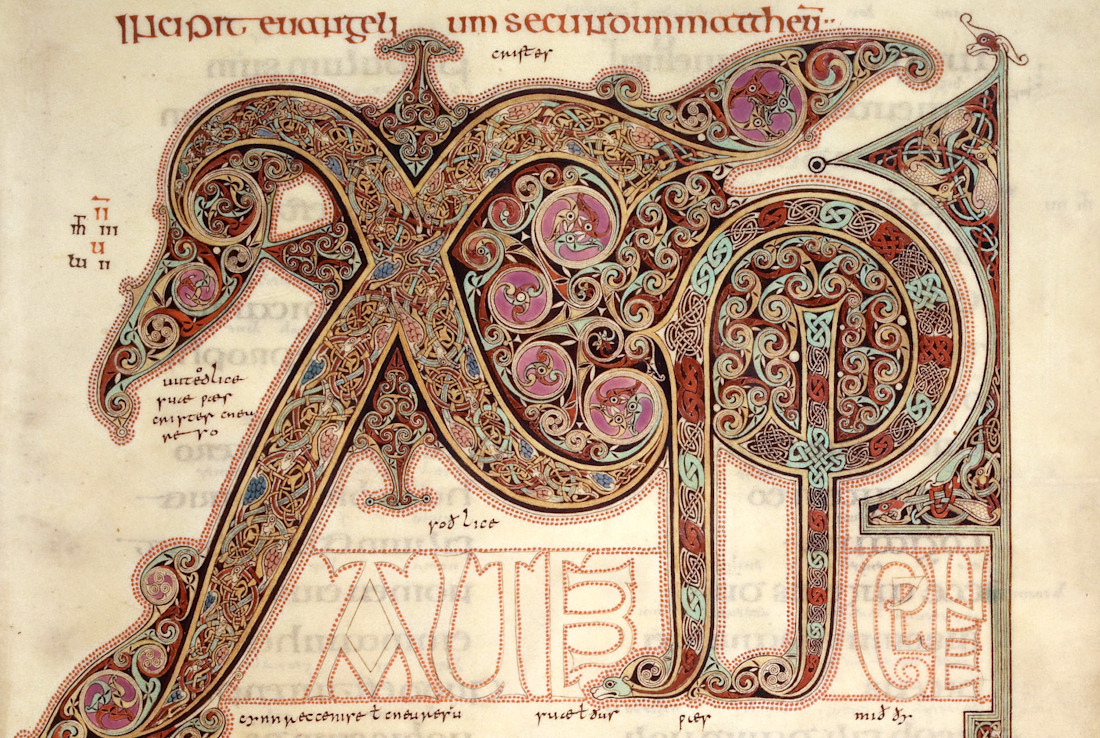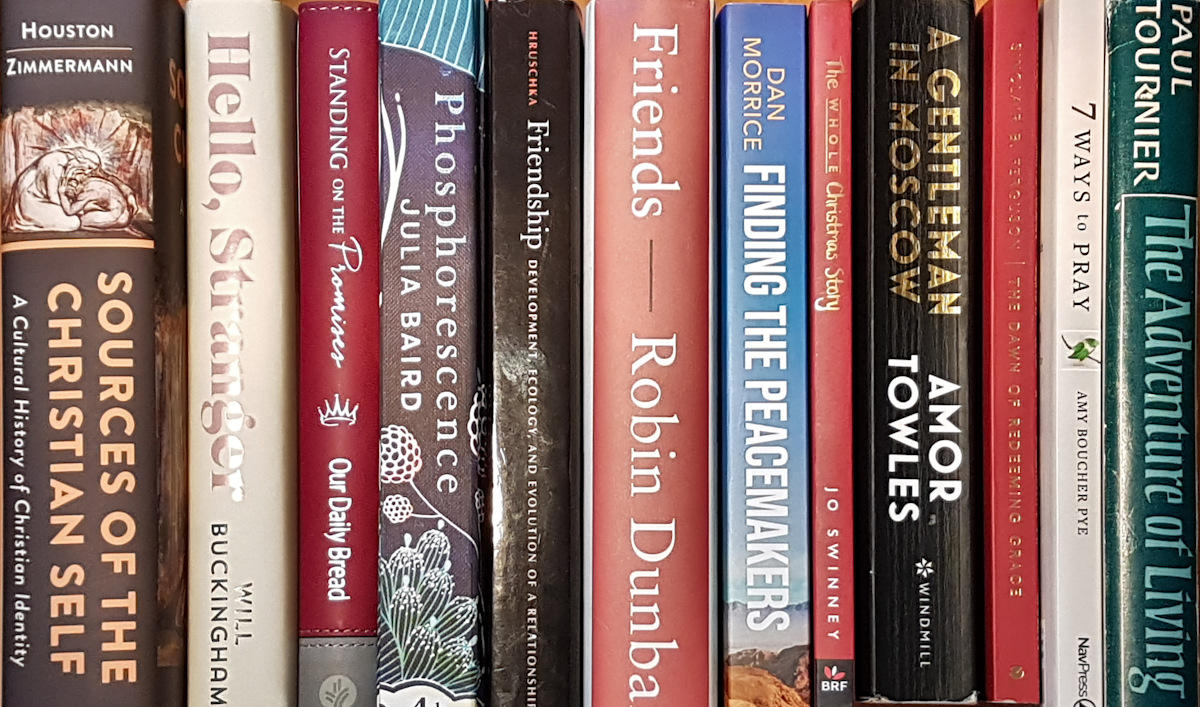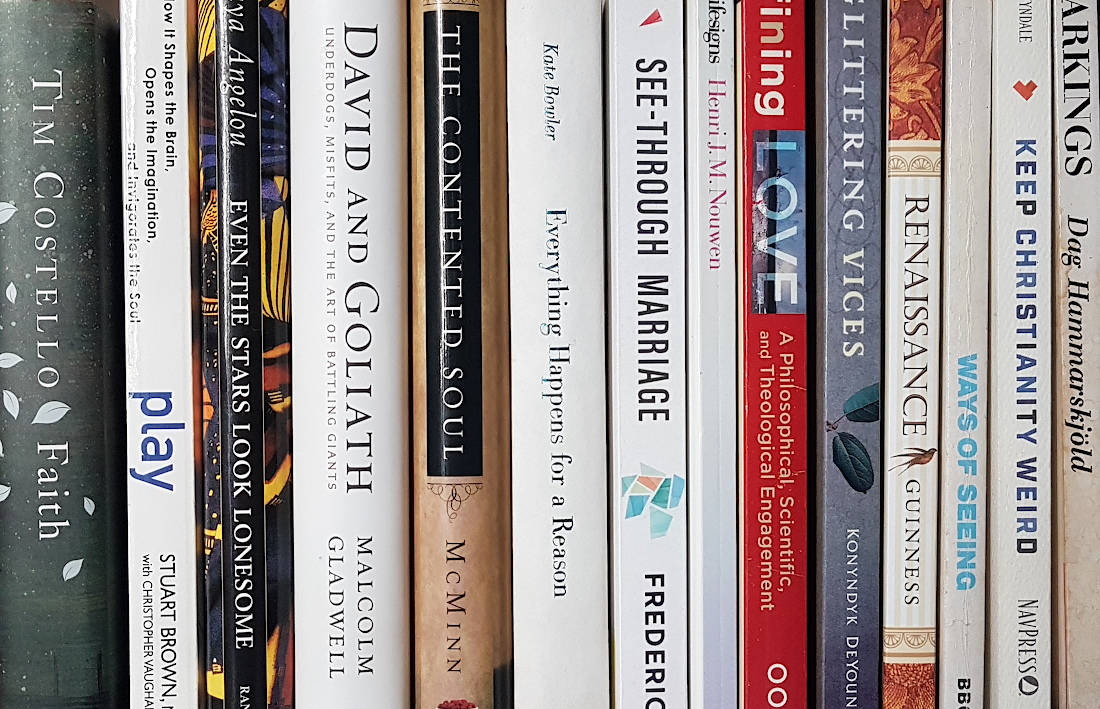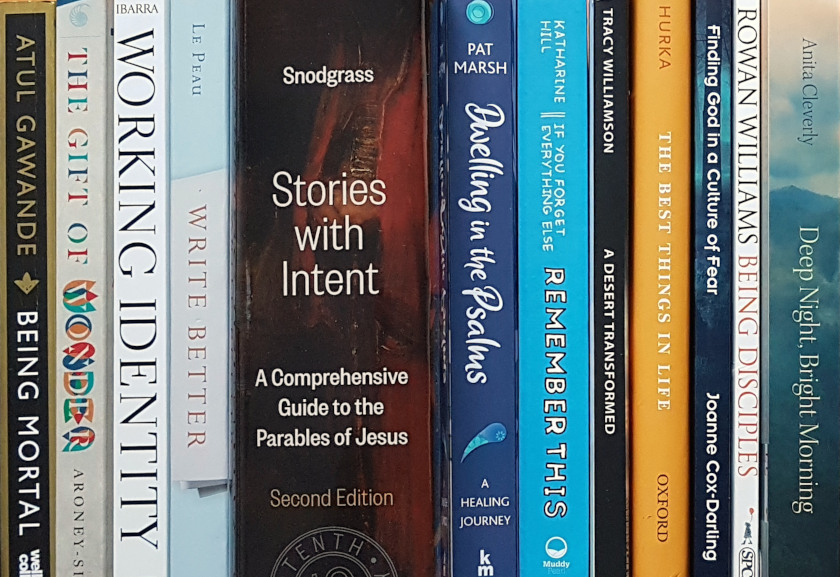
The Best Books I Read in 2019 (and a Few Others)
Where would we be without books? What wonder and wisdom we’d miss out on, what delight we’d forfeit. And so I present to you this year’s edition of my Best Books list (you can find previous year’s lists here). These are the titles I read, those I had the honour of endorsing, the good, the not-so-good, and more. As I know some use this list for Christmas gift ideas, I’ve added Amazon links for you to explore each book further. But as I say each year, consider supporting your local bookshop wherever you can.
What were the best books you read this year? Give me your literary tips in the comments below!
Particularly Recommended
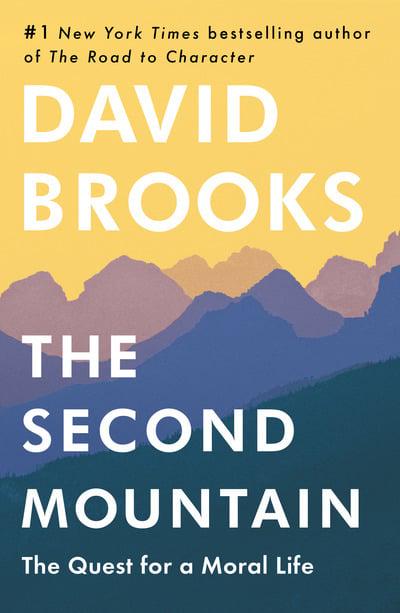 |
The Second Mountain by David Brooks Amazon US | Amazon UK
New York Times columnist David Brooks diagnoses the hyper-individualism of our times with its devastating effects of anxiety, loneliness and crises of purpose, then presents commitment as the cure (namely commitment to a vocation, a spouse, a philosophy or faith, and a community). While let down by woefully inadequate notes (some quotes and research are referenced, others not, to no apparent reason), the ideas, stories and concepts contained make this not just one of the best books I read this year, but the best of recent years. |
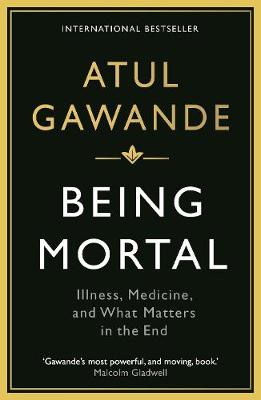 |
Being Mortal by Atul Gwande Amazon US | Amazon UK
When my father was diagnosed with pancreatic cancer a year ago, with ramifications for my mother, who also needs care, I was ready for a well-researched exploration into illness, medicine, care options, and making important family decisions on them all. While written from an American context, much of Being Mortal is easily transferable to others. An important book. |
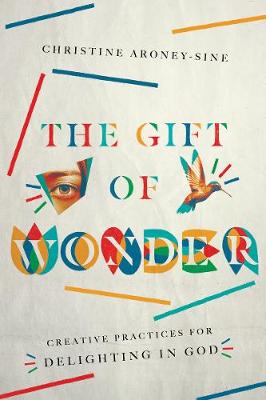 |
The Gift of Wonder by Christine Aroney-Sine Amazon US | Amazon UK
What does it mean to delight in God, and what practices can help us do so? In this highly practical book, Christine Sine explores childlike, playful activities we can turn into spiritual disciplines. From taking ‘awe and wonder walks‘ to ‘seed bombing’ vacant neighbourhood blocks, there are enough ideas here for even the most serious believer to have fun with. |
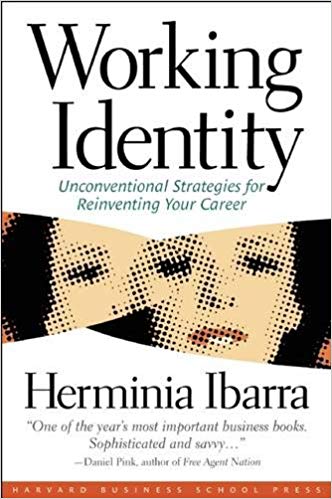 |
Working Identity by Herminia Ibarra Amazon US | Amazon UK
What if finding a new vocation wasn’t so much about psychological assessments and aptitude tests, but action – starting small sideline projects, knocking on different career doors, trial and error? What if your current network might be holding you back from your next career (because they only know the current ‘you’), and the real people holding access to your future are lesser-known acquaintances (who don’t prejudge your left-field ideas)? Based on case studies of those who’ve reinvented their careers in sometimes unexpected ways this was a fascinating read. |
Books I Endorsed
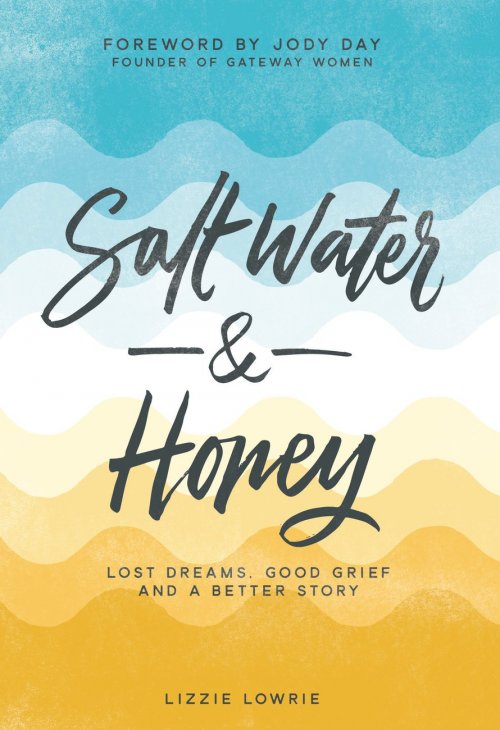 |
Salt Water and Honey by Lizzie Lowry Amazon UK
“I used to think the best way to help someone find hope was to give them a success story – some glimpse of their dream coming true. But after a personal brush with deep pain I discovered hope is often born through the kind of raw sharing contained in these pages – of deep loss and painful wrestling that help us know we’re not alone in our own dark times. Combining gut-wrenching honesty with humour and beautiful portrayals of friendship, Saltwater and Honey helps us in ways simple success stories can’t. Because one of our deepest fears we have about our dreams not coming true is that our lives will be over. They won’t be. Read this and see what’s possible instead.” |
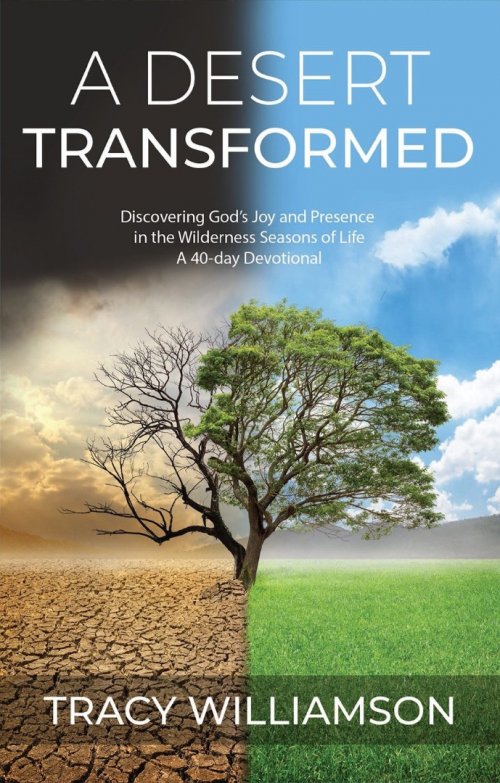 |
A Desert Transformed by Tracy Williamson Amazon US | Amazon UK
“There is a quiet power to these short meditations, like a thunderstorm on mute, its energy felt rather than heard. Tracy Williamson may be hearing impaired but she is spiritually attuned, and I sense a Voice rumbling through the gentle words of this book. Listen for that Voice as you read; it offers gentle joy in the midst of life’s trials.” |
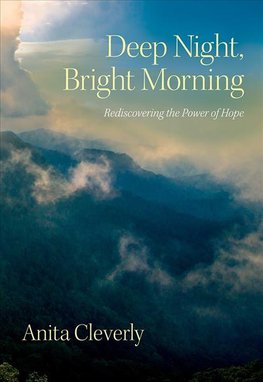 |
Deep Night, Bright Morning by Anita Cleverly Amazon US | Amazon UK
“Anita Cleverly experienced a loss that drove her to her knees—first in agony, then in prayer. And from that posture she rose to write this stirring call to radical discipleship that reaches the broken, lost and lonely. May these stories and reflections move you too from darkness to light, so you can help others find their own bright new mornings.” |
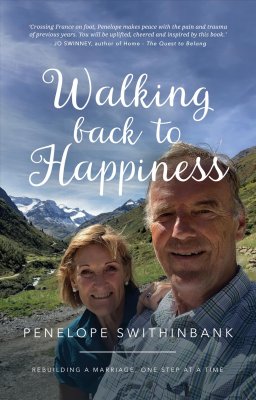 |
Walking Back to Happiness by Penelope Swithinbank Amazon US | Amazon UK
“More than a tale of a bucket-list adventure, this is a return-to-love story of a marriage grown cold. Walking miles across France, our protagonists inch closer towards each other. With colour and grit, Walking Back to Happiness shows what can be regained in a relationship when we commit to walking a new path side-by-side.” |
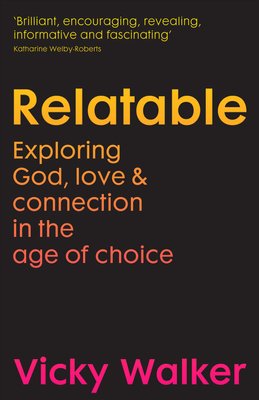 |
Relateable by Vicky Walker Amazon UK
“Through wit, candour, and fresh research, Vicky Walker gives us not another how-to-get-hitched book, but a snapshot of public opinions on modern day love, partnering and matrimony. The results are enlightening, sometimes concerning, and always educational, providing a necessary critique of much relationship advice and the distortions they can carry. Relateable will be a helpful resource for church leaders wanting to really know the lived experience of the single, newly coupled, and the rest of us navigating modern relationships.” |
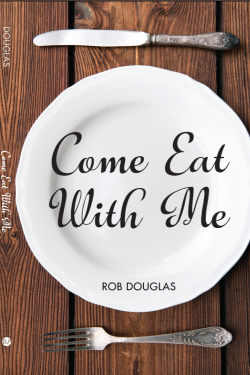 |
Come Eat With Me by Rob Douglas Amazon US | Amazon UK
“Table, plate, cup – few things are more domestic or ordinary. In the hands of Rob Douglas, however, they become symbols of divine-human hospitality. By interlacing short, imaginative retellings of biblical stories with evocative personal experiences, Douglas invites us to feast on a big idea – God wishes to dine with us. A book to savour and enjoy.” |
Christian Living and Theology
Being Disciples by Rowan Williams. Reflections on faith, hope, love, forgiveness, holiness and more in Williams’ thoughtful, gentle, invite-rather-than-push style.
Finding God in a Culture of Fear by Joanne Cox-Darling. Cultural analyst Cox-Darling takes a fresh look at Christian hope in the face of modern terrorism, corruption and fake news. This is a timely and thought-provoking book folding stories, big ideas and biblical reflection together with practical action on staying hopeful in a world gone mad.
Stories With Intent by Klyne Snodgrass. This was one of my best reads of last year, where I described it as the best text on Jesus’ parables around. I mention it again only because I’m still making my way through its 800-plus pages.
Dwelling in the Psalms by Pat Marsh. Poet and retreat leader Marsh turns her attention to the Psalms, offering a short commentary on key verses of all 150 of them, followed by a reflective prayer. This will be perfect for personal devotions and the beautiful cover will make it an attractive gift. Nicely done.
The Lindisfarne Icon by Helen Julian. You’d have thought that writing a book with the seventh-century monk Cuthbert as a secondary character would’ve gotten him out of my system. No. This well-researched and accessible look at his life answers a lot of questions I was asking.
There is Hope by Robert Hillman. The last work written by Hillman as he battled with cancer, now re-released by co-author Coral Chamberlain, this is a short book of comfort and practical advice for those suffering long-term illness as well as those who care for them.
Drops Like Stars by Rob Bell. An easy read (less than an hour), looking at the creative possibilities of suffering. Nothing too profound here, but my paperback version lacked the dramatic photography of the original coffee table book
If You Forget Everything Else, Remember This by Katherine Hill. The UK Director of Care for the Family gives marriage advice in short, enjoyable chapters. Merryn and I even get a mention! Fun, practical and insightful.
General Non-Fiction
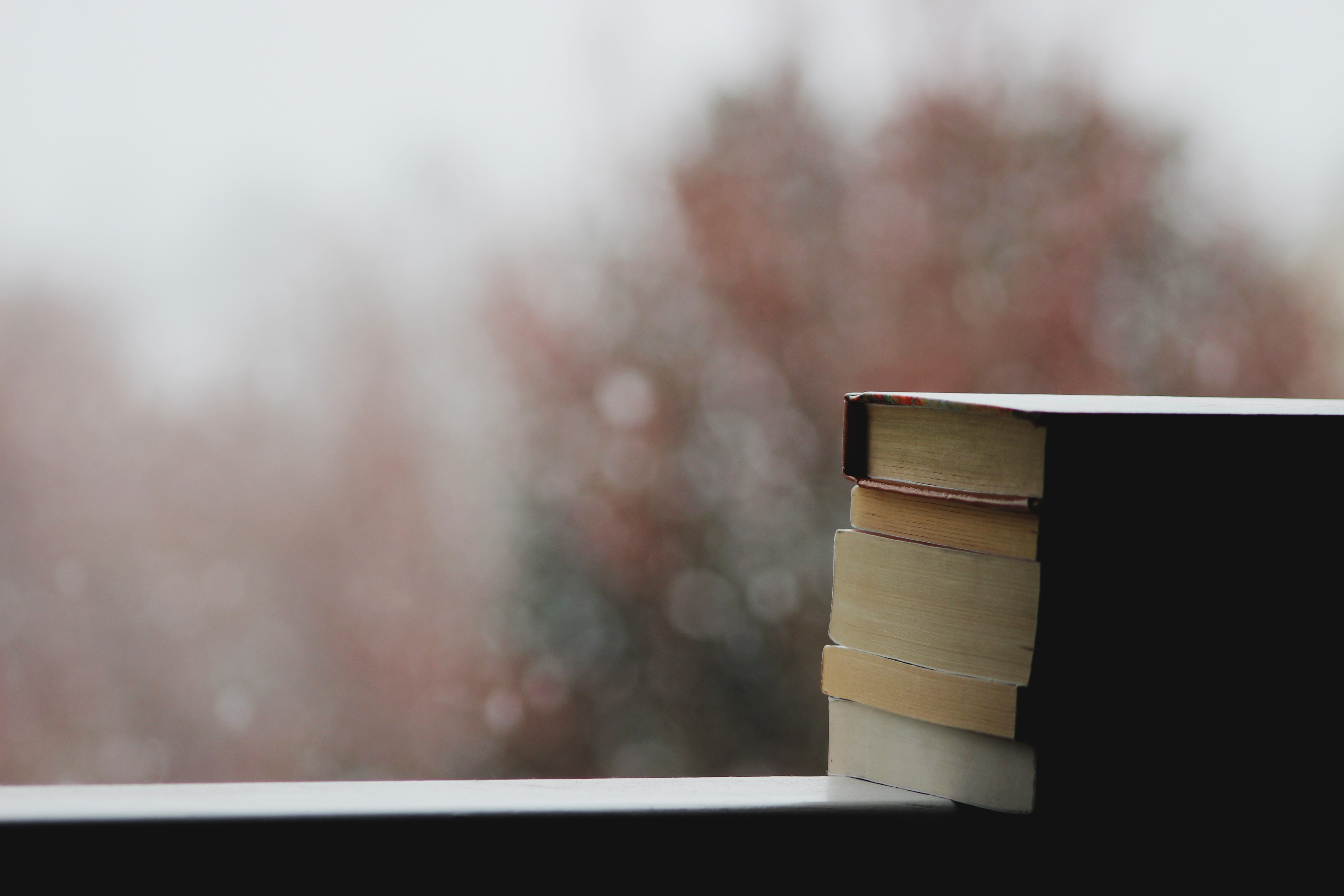
The Little Book of Ikigai by Ken Mogi. The self-help category goes through cycles, the current trend being Japanese philosophies that promise the secrets of longevity. Roughly translating as ‘a reason to get up in the morning’, Ken Mogi says ikigai is built on five pillars: starting small, releasing yourself, harmony and sustainability, the joy of little things, and being in the here and now. An interesting read but nothing too earth-shattering for me personally.
The Best Things in Life by Thomas Hurka. Philosopher Hurka reviews what the great minds have said makes for a good life – happiness and pleasure, friendship and love, accomplishment, knowledge and virtue – then test them out. I didn’t agree with all of his conclusions but found this a good overview of major approaches to life’s meaning.
The Happiness Project by Gretchen Ruben. Realising she may not be focusing on things that matter, Rubin sets herself some experiments to become more focused and happier. Written when the blogging craze was at its peak, the book is bloated from too many (often banal) comments from her blog readers, but is an otherwise easy-to-read account of a personal growth project. I picked this up after reading lots of serious stuff. I did find myself skipping large sections, though.
Recovery by Helen Macdonald. Drawn from her longer book H is for Hawk, Recovery recounts Macdonald’s progression through the grief of losing her father by her training a goshawk. Focussed so much on the hawk, she finds herself at times taking on its characteristics. A case of us becoming what we focus our lives on.
Luther and Calvin: Religious Revolutionaries by Charlotte Methuen. The approach is helpful – look at Luther and Calvin’s lives and theology in light of their church, political and historical contexts alone. No idolisation, demonisation, or commentary. Very helpful for getting a clear-eyed overview of what led to the Reformation.
Fiction
 Seize the Day by Saul Bellow. You’ll be waiting until the very last sentence (literally) for any hint that things will turn around for Tommy Wilhelm as he searches for success and purpose. And it will be so subtle you’ll sit for an hour wondering if it really did come.
Seize the Day by Saul Bellow. You’ll be waiting until the very last sentence (literally) for any hint that things will turn around for Tommy Wilhelm as he searches for success and purpose. And it will be so subtle you’ll sit for an hour wondering if it really did come.
The Paper Lovers by Gerard Woodward. With its explicit scenes I had a crisis of conscience over finishing this book. I continued as I wanted to know why Vera, a committed churchgoer, could have an affair with Arnold, also married with children, without any crisis of conscience herself. And I wanted to know what would happen when atheist Arnold went along to her church. Would he become a Christian? What would happen if his Christian-hating wife Polly found out about it all? While the ending was creative, too many questions remained for me to make this anywhere near Graham Greene’s The End of the Affair, as one endorser compared it too.
How Much the Heart Can Hold by Various. Seven writers pen a short story each based on one Greek word for love. A good concept not always successfully executed, although Carys Bray’s Codas, on familial love, and Donal Ryan’s Mania, on obsessive love, standout. (Adult themes and strong language in places)
Exile and the Kingdom by Albert Camus. Why have the ideas of some atheist authors lasted so long after their deaths? One reason is because many wrapped those ideas in compelling fiction. These six stories won’t lift your spirits, but they explore the theme of cultural, social and political exile – something Camus often felt. I don’t like his nihilism but have to admit he was a brilliant writer. Oh for more people of faith to write at this calibre.
Fame by Daniel Kehlmann. What at first seems like a series of short stories become subtly-interwoven pieces in a bigger story about fame, what it brings, whether it can really help in a crisis, and more. I looked forward to each instalment. Very clever writing. (Some adult themes)
Writing and Poetry
Write Better by Andrew T Le Peau. A helpful book on the art, craft and spirituality of writing. On occasion I was wanting the practical advice to go further, perhaps because so much is covered in the book space only allowed for overviews, but there are some real gems here for the budding writer on not just writing a book but being a deep soul.
Exhale (Volume 1, Fall 2019) by Various. A new literary journal from Michigan’s Breathe Writers Conference, there’s some great writing here, like Someday. Today by Andrew Rogers – an honest piece about the illness of a child. (Check out Jot That Down, a book of writing tips from the same Breathe Conference too.)
Disappointing or Left Unfinished
The Hungering Dark by Frederick Buechner. If you’ve read these book posts in recent years you’ll know my love for Buechner. I read or reread a work of his most years. But for some reason I just couldn’t get excited by this collection of essays. Maybe it just wasn’t the right time.
Celebrating Creation by Various. Released in 2004 as a series of conference papers, this collection aims to explore how God’s glory is reflected through creation, art, natural science, humanity and more – a favourite topic of mine. While containing some insights, I found the lack of definition of ‘God’s glory’ a barrier (it’s a nebulous phrase) and the liberal-leaning theology in places hard to accept.
Oh, and Have You Got This?

While we’re talking books, I know what you’re thinking: “The Making of Us is such a good book I must get copies for all my family and friends for Christmas.” Well, glad tidings I bring! It’s been on special this week at various outlets. Go get ’em at Amazon US, Amazon UK, Barnes and Noble, Eden, Koorong, Book Depository or your local bookshop. You’ll get them in time to put under the tree before you’ve even put it up.
Then don’t forget to get your FREE poster print and Creed personalisation guide over here.
Your Turn
What were the best books you read this year? I’d love to know. Tell me below!


